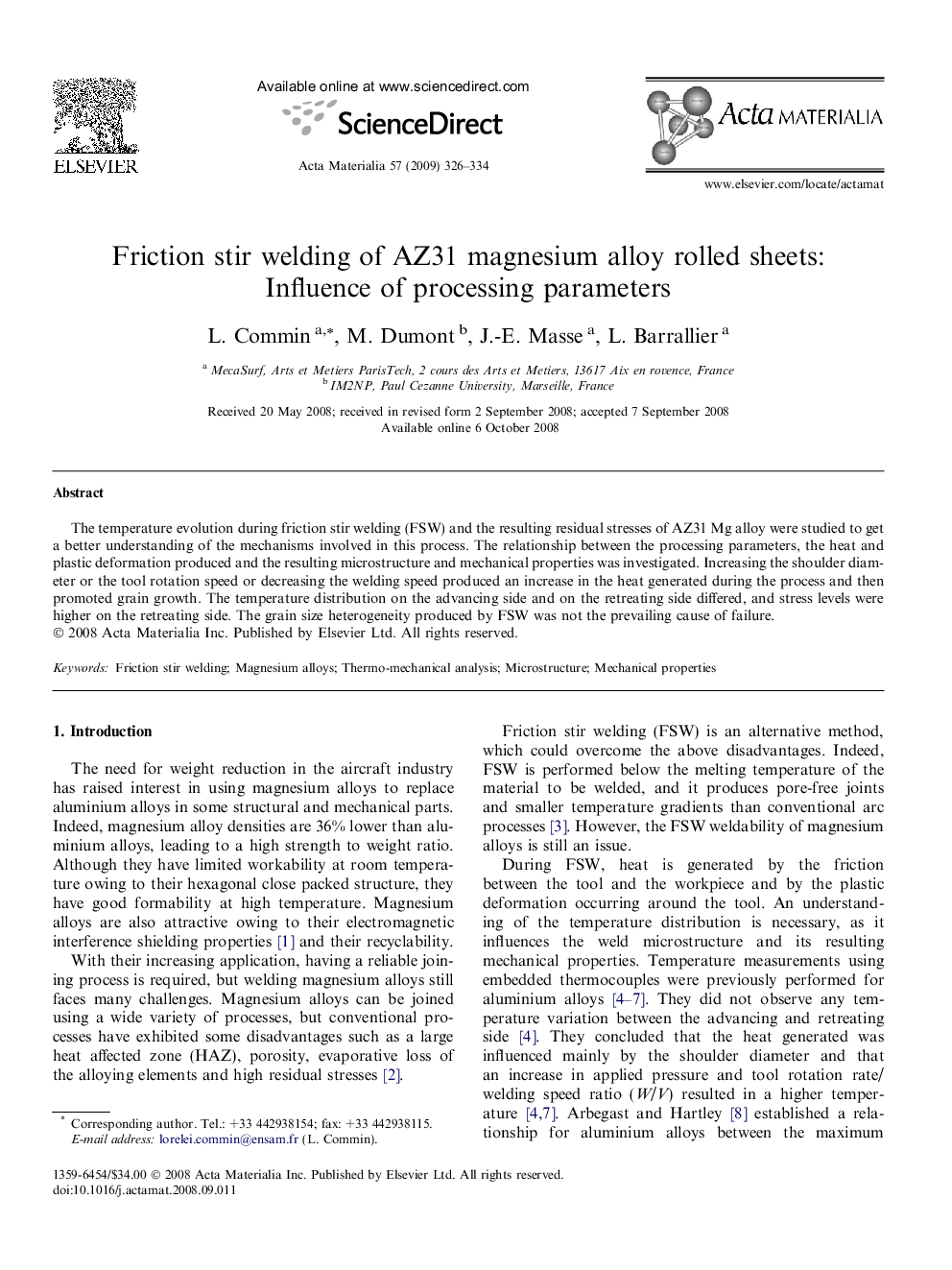| کد مقاله | کد نشریه | سال انتشار | مقاله انگلیسی | نسخه تمام متن |
|---|---|---|---|---|
| 1448802 | 988684 | 2009 | 9 صفحه PDF | دانلود رایگان |

The temperature evolution during friction stir welding (FSW) and the resulting residual stresses of AZ31 Mg alloy were studied to get a better understanding of the mechanisms involved in this process. The relationship between the processing parameters, the heat and plastic deformation produced and the resulting microstructure and mechanical properties was investigated. Increasing the shoulder diameter or the tool rotation speed or decreasing the welding speed produced an increase in the heat generated during the process and then promoted grain growth. The temperature distribution on the advancing side and on the retreating side differed, and stress levels were higher on the retreating side. The grain size heterogeneity produced by FSW was not the prevailing cause of failure.
Journal: Acta Materialia - Volume 57, Issue 2, January 2009, Pages 326–334